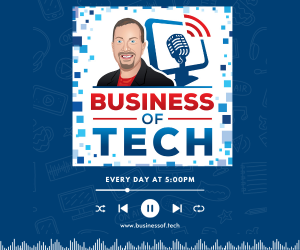How Apple’s Move to In-House Chips Signals a Shift for MSPs
Apple’s launch of the iPhone 16E featuring its in-house C1 modem chip marks a major shift in the technology industry. By eliminating reliance on Qualcomm, Apple is doubling down on proprietary hardware, following a trend seen across major tech companies. For Managed Service Providers (MSPs), this shift isn’t just about Apple—it’s a glimpse into the future of IT ecosystems. As more tech giants build closed-loop hardware and software, MSPs must adapt their strategies to stay competitive.
1. Vendor Lock-In is Expanding—MSPs Must Stay Agile
Apple’s shift to an in-house modem reinforces its closed ecosystem, limiting external influence and compatibility options. Microsoft, Google, and Amazon are making similar moves, developing custom chips for their devices and services. As more companies control their full tech stack, MSPs must be prepared for greater challenges in cross-platform compatibility, staying informed about multiple proprietary systems, and advising clients on balancing vendor dependency versus IT flexibility.
2. Proprietary Hardware Increases Security—but with New Challenges
Apple’s C1 modem brings better security integration, but MSPs managing security across multiple platforms will face new challenges. Proprietary encryption and authentication methods may improve device security, but they also require adjustments in compliance policies. MSPs will need to stay updated on how these changes impact endpoint security, threat detection, and regulatory standards. As Apple continues refining its closed ecosystem, ensuring that client security strategies remain effective will be critical.
3. Supply Chain Disruptions Could Impact MSP Procurement
By cutting out Qualcomm, Apple gains greater control over its supply chain, but this move also introduces risks of manufacturing delays and hardware shortages. MSPs managing device procurement for clients should be aware of fluctuations in iPhone availability. Planning ahead and diversifying hardware offerings will help mitigate disruptions. Those who proactively strategize hardware purchasing will be better positioned to serve clients during unpredictable supply chain shifts.
4. MSPs Will Need to Adapt Enterprise Mobile Strategies
Apple’s shift toward proprietary hardware could impact enterprise mobility management (EMM) solutions. New device architectures may require changes in security policies, network configurations, and remote management tools. MSPs supporting businesses that rely on iOS will need to reassess how they manage Apple devices. Understanding firmware updates, ensuring compatibility with MDM platforms, and optimizing mobile security policies will be crucial to maintaining service quality.
5. The Future is Proprietary—MSPs Need to Keep Up
Apple’s decision to design its own modem is just one example of a growing trend among tech giants. Microsoft, Google, and Amazon are already moving in the same direction, prioritizing proprietary chips and vertically integrated ecosystems. MSPs must stay informed on these changes, invest in ongoing training, and offer vendor-neutral support to clients. The IT landscape is evolving rapidly, and those who stay ahead of these shifts will maintain a competitive advantage in the managed services industry.
Apple’s iPhone 16E and in-house C1 modem chip represent a turning point for the industry. As proprietary hardware becomes the norm, MSPs must rethink security strategies, plan for supply chain disruptions, update enterprise mobility solutions, and prepare for an IT world increasingly dominated by vendor-controlled ecosystems. The best MSPs will be the ones who proactively adapt, offering their clients strategic guidance and innovative solutions in this rapidly changing environment.
Related Blogs
How Microsoft’s Sign-In Changes Could Impact and Their Security Strategies
5 Ways DeepSeek’s AI Model Can Influence MSPs in a Rapidly Evolving Tech Landscape
AI Safety: 5 Key Takeaways for MSPs from the ChatGPT Self-Copying Incident



